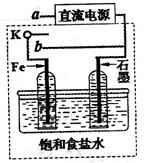Having learned much about the War of Resistance against Japan, Mao Jingxin didn’t like the Japanese when she was a child. “I thought they were cruel and rude,” said the 18-year-old girl from Hebei Province. But she began to change her mind after she met some Japanese teenagers in a history museum six years ago. These fashionable high school students looked seriously at the history displays and talked to Mao in a friendly way. “I found that they are not bad as I thought,” she said.
Like Mao, many Chinese teenagers’ are caught up in this confusion. A survey by 21st Century Teens shows about 51 per cent of Chinese teenagers say they dislike Japan. But most of them still want to have a Japanese friend. Also, Japan lies third on their list of Asian countries that they want to visit, following Singapore and South Korea. Teens did a survey just before the 60th anniversary of the victory day of the War of Resistance against Japan, which fell on September 3. The survey aimed to encourage understanding and communication between young Chinese and Japanese.
Teens also wanted to understand Chinese teenagers’ attitudes towards Japan, and how much they actually know about the country. As Teens found, more than 60 per cent of Chinese teenagers learn about Japan through the media or books. Only 16 per cent have ever met a Japanese person.
“Most of my friends hate Japan for what it did to China during World War II. But people should not live in hatred. I think the best way to figure it out is to have contact with the Japanese people myself,” Zhang Yuyuan, a Senior 2 girl, told us in the survey.
Jin Xide, professor of the Chinese Academy of Social Science, says that China and Japan actually had a peaceful relationship during the 1970s and 1980s. Since the 1990s, the growth of Japan’ s right-wing forces has caused great difficulties. “We have to be strong against them. But we mustn’t ignore the fact that there are far more friendly Japanese,” added Jin.
“Japan has done wrong to Asian countries including China and it has caused pain to everyone,” said Hikaru, a 17-year-old girl in Kawasaki. Having visited China four times and learned much, she understands the importance of communication between the two peoples. She plans to join in an exchange programme with Chinese youth. “Welcome to Japan, my Chinese friends!” She says it with a smile.
64. Most teenagers hate Japanese because _______.
A. the Japanese they meet are cruel
B. the Japanese were cruel during the war
C. they look too fashionable
D. the Japanese don’t want to communicate with Chinese people
65. Which of the following statements is NOT true according to the survey?
A. Only a small percentage of teenagers have met a Japanese.
B. More than half of the teenagers in the survey don’t like the Japanese.
C. Singapore is one of the most popular Asian tourist places for Chinese teenagers.
D. Most Chinese teenagers learn about Japan through exchange activities.
66. According to Professor Jin, _____ is the main reason for the worse relationship between Japan and China.
A. the War of Resistance against Japan
B. lack of communication
C. Japan’s increasing right-wing force
D. Japan’s rapidly-growing economy
67. The passage is written to ______.
A. encourage Chinese teenagers to meet the Japanese
B. report what Chinese teenagers think about Japan
C. provide information about Japanese teenagers
D. give a brief introduction to the history of the War of Resistance against Japan

 。
。